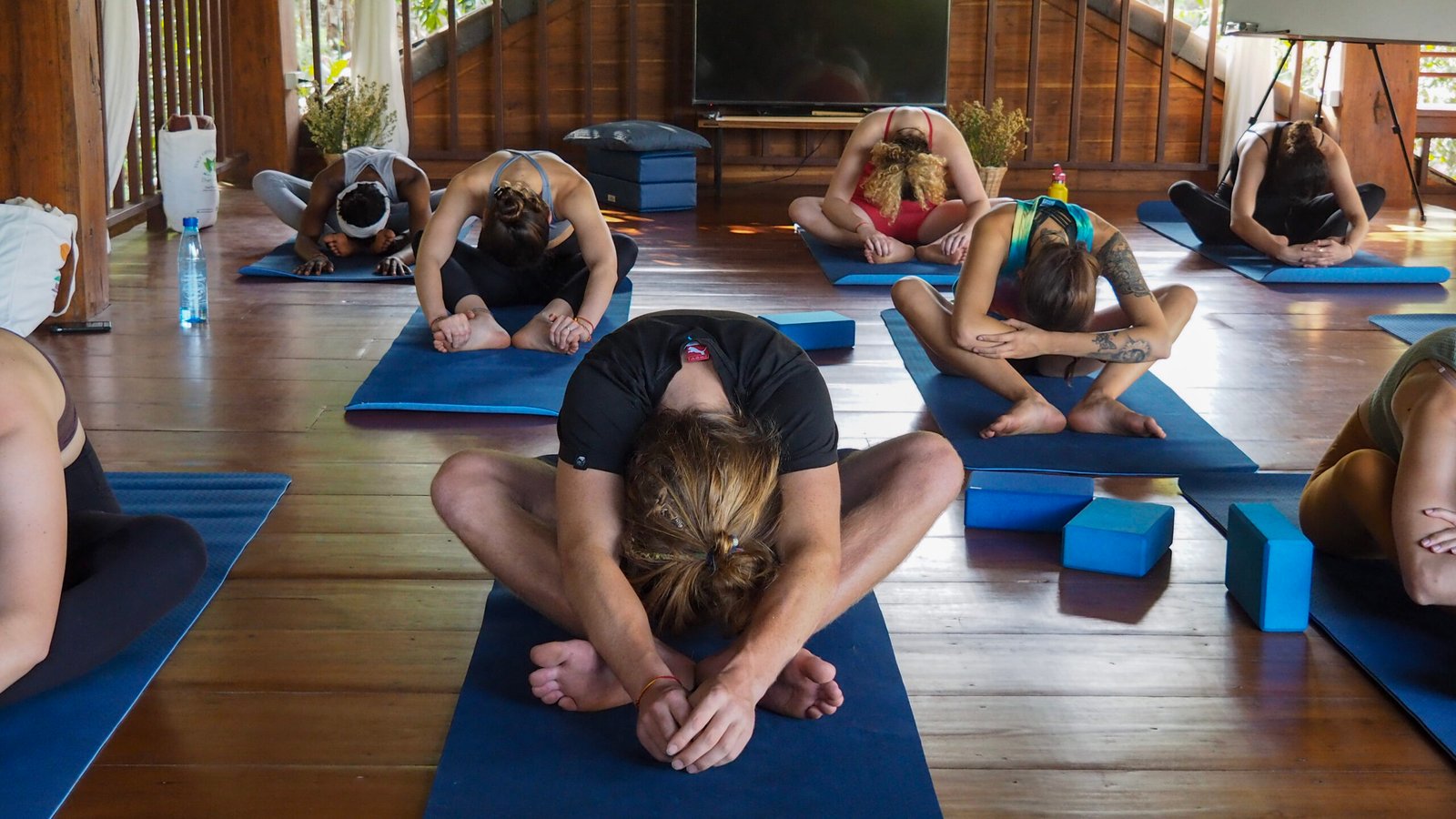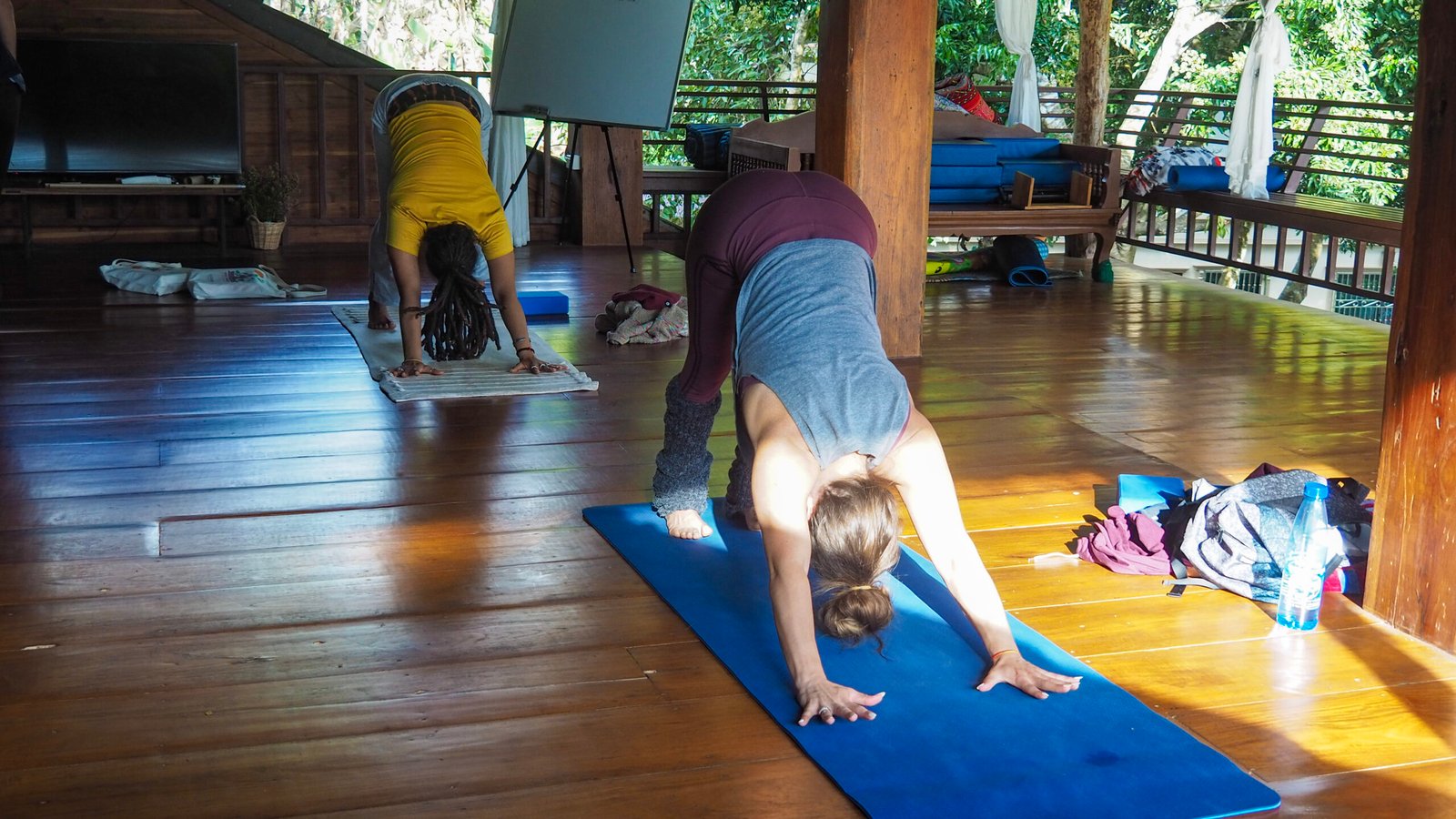Are you feeling stressed out and anxious? Do you find it difficult to manage your emotions or calm your mind? If so, you’re not alone. Many people struggle with mental health issues like anxiety and stress on a daily basis. The good news is that there are natural ways to alleviate these symptoms without medication. One of the most popular and effective methods is yoga. In this blog post, we’ll explore the connection between yoga and mental health, and how practicing yoga can help reduce anxiety and stress levels in your life. So roll out your mat, take a deep breath, and let’s dive in!
Introduction to Yoga and Mental Health
Yoga has been shown to be an effective treatment for mental health conditions like anxiety and stress. Yoga can help to reduce symptoms of anxiety and stress by promoting relaxation, improving sleep, and reducing negative thinking. Yoga may also help to increase feelings of self-esteem and well-being.
Benefits of Practicing Yoga for Mental Health
Yoga has been shown to be an effective intervention for mental health conditions like anxiety and stress. A regular yoga practice can help to reduce the symptoms of anxiety and stress, and can also help to prevent these conditions from developing in the first place.
There are many different benefits of practicing yoga for mental health. Yoga can help to improve mood, increase resilience to stress, boost self-esteem, and promote relaxation. Yoga also has physical benefits that can help to reduce the symptoms of anxiety and stress, such as reducing blood pressure and heart rate.
Yoga is a safe and effective way to improve mental health. If you are interested in trying yoga, please speak with your healthcare provider first to make sure it is right for you.
Different Types of Yoga Poses to Help with Anxiety and Stress
Yoga is a form of exercise that can be beneficial for mental and physical health. Different yoga poses can help to improve anxiety and stress levels. Here are some different types of yoga poses that can help with anxiety and stress:
1. Child’s pose:
This pose is calming and helps to release tension from the back and shoulders.
2. Camel pose:
This pose helps to open up the chest and increase breathing capacity, which can be helpful for those who suffer from anxiety or panic attacks.
3. Warrior I pose:
This powerful pose helps to increase strength and confidence, which can be helpful in managing stress and anxiety.
4. Triangle pose:
This pose helps to stretch the sides of the body and lengthen the spine, promoting relaxation and ease in the body.
5. Corpse pose:
This final resting pose allows the body and mind to completely relax, helping to reduce stress and promote a sense of peace.
The Connection Between Breathing Exercises and Mental Health
When it comes to mental health, there are a lot of things that can help alleviate anxiety and stress. For some people, medication is necessary and helpful. For others, therapy is key. And for many, a combination of both is ideal. But there’s one other tool that can be extremely helpful in managing mental health: yoga.
Yoga has been shown to be beneficial for mental health in a variety of ways. One of the most important is its impact on breathing. Many people who suffer from anxiety or stress tend to breathe shallowly and rapidly, which can exacerbate symptoms. Yoga teaches deep, slow breathing, which has a calming effect on the body and mind.
In addition to its impact on breathing, yoga also helps to improve flexibility and strength, both physical and mental. It can also help reduce negative thoughts and rumination by increasing mindfulness. And finally, the social aspect of yoga – being in a class with other people – can also be beneficial, providing a sense of community and support.
If you’re struggling with anxiety or stress, give yoga a try. It just might be the missing piece in your wellness puzzle.
Tips for Beginners on How to Get Started with Yoga
If you’re new to yoga, it’s important to find a class that’s right for your level of experience. There are many different types of yoga classes, from beginners’ classes to more advanced classes. It’s also a good idea to talk to your doctor before starting a yoga class, especially if you have any health concerns.
Once you’ve found a class that’s right for you, there are some things you can do to make sure you get the most out of your yoga practice. First, be sure to arrive early so that you have time to check in with the teacher and set up your mat and props. Then, during class, focus on your breath and be mindful of your body. If you need to take a break at any point, please do so. And finally, remember to relax and enjoy the experience!
Resources for Further Reading and Learning
If you’re interested in learning more about the connection between yoga and mental health, there are some great resources out there. Here are a few of our favorites:
Yoga for Anxiety and Depression by Amy Weintraub: This book is a great resource for anyone looking to learn more about how yoga can help with anxiety and depression. Weintraub offers a detailed look at how yoga can be used as an effective treatment for both conditions.
The Mindful Way through Depression by Mark Williams, John Teasdale, Zindel Segal, and Jon Kabat-Zinn: This book is another excellent resource for those interested in learning more about how mindfulness can help with depression. The authors offer a step-by-step guide to using mindfulness to treat depression.
The Relaxation and Stress Reduction Workbook by Martha Davis, Elizabeth Robbins Eshelman, and Matthew McKay: This workbook is a great tool for anyone looking to learn more about how to reduce stress and anxiety. The authors offer a variety of exercises and techniques that can be used to achieve relaxation.
Conclusion
Yoga is a great way to help reduce stress and anxiety. The connection between yoga and mental health is clear, as it helps us access our inner strength, cultivate self-awareness, and create a sense of peace. As we practice yoga regularly, we become aware of our emotions and can more easily manage any stress or anxiety that arises. So if you’re looking for an effective way to cope with your mental health struggles, give yoga a try!









